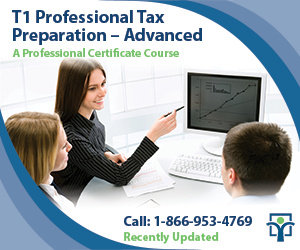Reporting Dividends? Check Out These Tax Tips

Dividends of taxable Canadian corporations enjoy preferred tax rates, but some complexities in reporting can plague unsuspecting filers. Here are some tips for last-minute filers:
-
What are dividends? Dividends are earned as a result of an investment by an individual in a corporation and are distributed after taxes have been paid on the earnings of the company.
-
How are they reported? The actual dividends received by shareholders are “grossed up” so the taxpayer reports an amount higher than that received. Offsetting the tax on this grossed-up amount is a “dividend tax credit” (DTC), which is computed on Schedule 1 Detailed Tax Calculation as a reduction of federal taxes payable. A provincial credit is also calculated on the tax calculation schedule for your province of residence. The process may sound overly complicated, but the objective with these calculations is to integrate the corporate and personal tax systems to avoid double taxation.
-
What is the amount of the gross-up? The amount of the gross-up and DTC will depend on whether the corporation is a public or private company and, as a result, there are two specific terms for the dividends earned:
-
Other Than Eligible or “Ineligible” Dividends. These are dividends by Canadian Controlled Private Corporations (CCPCs), whose income falls within the limits for the Small Business Deduction (SBD) and are, therefore, subject to a lower rate of corporate tax. Any CCPC with income up to $500,000 qualifies for the SBD federally and in most provinces. For ineligible dividends, as they are known, the taxable amount for 2015 is 118% of the actual dividends with an offsetting dividend tax credit of 11% of that taxable amount. As a result of reductions in the corporate tax rate paid by these corporations in 2016, the gross up and credit are reduced in 2016.
-
Eligible Dividends: Eligible dividends are those paid after 2005 by Canadian resident public corporations, and by CCPCs whose income is subject to tax at the higher “general” corporate rate because it exceeds the small business deduction. The taxable amount for eligible dividends is 138% of the actual dividends paid, with an offsetting dividend tax credit of 15.02% of that taxable amount.
-
What are the tax planning issues you should be aware of when earning dividends? There are several planning issues:
-
Tax Efficiencies. Canadian dividends can produce very tax-efficient income for taxpayers because dividends are subject to lower marginal tax rates than ordinary income sources, such as interest or pensions. This may even result in a “negative marginal tax rate” on dividend income; that is, the dividend tax credit may help to offset taxes owing on other types of income earned in the year. To illustrate, the marginal tax rates for 2016 for the province of BC, appear below:
|
|
Taxable Income Range |
Ordinary
Income |
Capital
Gains |
Small Bus.
Corp. Div. |
Eligible
Div. |
|
BC |
Up to $10,027 |
0% |
0% |
0% |
0% |
|
|
$10,028 to $11,474 |
5.06% |
2.53% |
3.08% |
-6.82% |
|
|
$11,479 to $38,210 |
20.06% |
10.03% |
8.27% |
-6.84% |
|
|
$38,211 to $45,282 |
22.70% |
11.35% |
11.36% |
-3.20% |
|
|
$45,283 to $76,421 |
28.20% |
14.10% |
17.79% |
4.39% |
|
|
$76,422 to $87,741 |
31.00% |
15.50% |
21.07% |
8.25% |
|
|
$87,742 to $90,563 |
32.79% |
16.40% |
23.16% |
10.72% |
|
|
$90,564 to $106,543 |
38.29% |
19.15% |
29.60% |
18.31% |
|
|
$106,544 to $140,388 |
40.70% |
20.35% |
32.72% |
21.64% |
|
|
$140,389 to $200,000 |
43.70% |
21.85% |
35.93% |
25.78% |
|
|
Over $200,000 |
47.70% |
23.85% |
40.61% |
31.30% |
-
Increased Net Income. The gross-up may be problematic for taxpayers who are in a clawback zone for non-refundable tax credits, refundable tax credits, or the OAS or EI Benefits. In fact, the grossed-up amount may reduce or eliminate these provisions, and so you’ll want to plan your investment income sources with this in mind. An RRSP contribution will reduce net income to protect your benefits.
|
|
 |
Be sure to talk to a Tax Services Specialist to maximize your access to tax credits and minimize taxes using the tax-preferred dividend income from Canadian public and private corporations.
Evelyn Jacks is President of Knowledge Bureau, Canada’s leading educator in the tax and financial services, and author of 52 books on family tax preparation and planning.
 |
 |
 |
 |
|
Refer a Friend |
Research |
Calculators |
Course Trials |
 |
 |
 |
 |